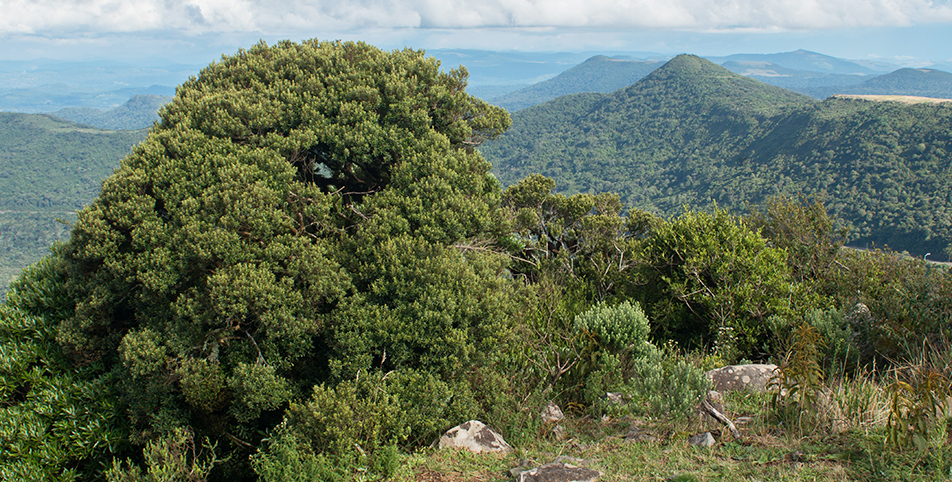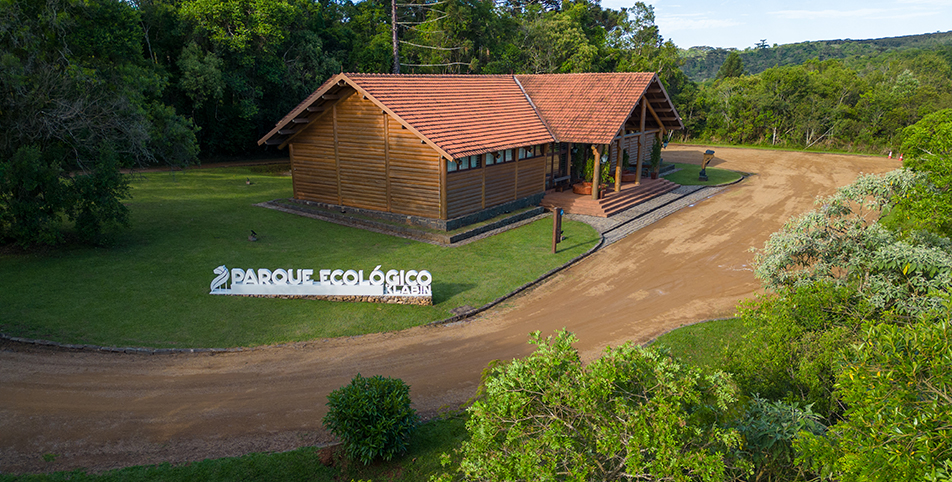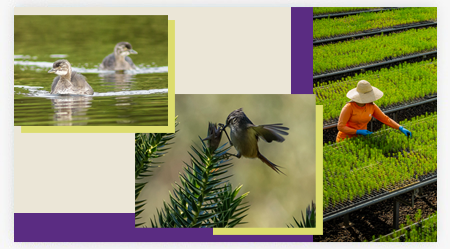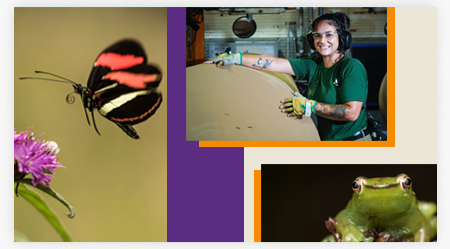Biodiversity
Biodiversity Conservation Plan
As a forestry-based company, Klabin places significant emphasis on biodiversity conservation, guiding its operations towards sustainable development. Currently, the Company has 751,000 hectares of forests, of which 42% are preserved native areas dedicated to biodiversity conservation and maintenance.
In 2023, Klabin began drafting its Biodiversity Conservation Plan to ensure that the impacts of its activities on biodiversity are offset or surpassed by prevention and mitigation measures. The initiatives should be aimed at restoring affected areas, improving the quality of native vegetation, and compensating for residual impacts to prevent permanent losses.
A global initiative that provides recommendations and guidance for financial organizations and businesses to understand and disclose the impact of their activities on nature.
SEE GLOSSARYBiodiversity monitoring
Through the Continuous Biodiversity Monitoring Program, Klabin verifies the impacts of managing its forests on the quantity, distribution, and behavior of fauna and adopts measures to prevent and mitigate damage to biodiversity, working towards its conservation.
The mosaic planting system, adopted by Klabin in a significant portion of its forest areas, helps protect nature and natural resources, contributes to improving the productive potential of its forests, and, through ecological corridors that allow the movement of hundreds of wildlife species, helps conserve biodiversity.
In addition to allowing the knowledge of the biological richness in the monitored areas, leading to new records, the monitoring contributes to the permanence and identification of threatened fauna and flora species in the Company's areas. As such, it is possible to recognize species over time and ensure the maintenance of High Conservation Value Areas (AAVCs).
Monitoring in 2023
Klabin has been monitoring biodiversity since 2019.
Reintroduction of species and population reinforcement
Continuing the reintroduction efforts for black-fronted piping-guans (Aburria jacutinga) into the native forest, two monitoring campaigns were conducted in 2023 to assess the species' survival capacity, dispersion, and formation of reproductive pairs in the Klabin Ecological Park (PEK). Thirty individuals of the species were released in 2022. The piping guan was selected for its ability to help forest restoration, taking into account its home range, which can reach up to 1,000 hectares, and because it is a great seed disperser, feeding on at least 46 types of native fruit.
In 2023, the PEK also received five vinaceous-breasted amazon (Amazona vinacea) for population reinforcement. During this period, health examinations were conducted and pre-release training began. Two individuals were rejected, one for health reasons and the other for lack of behavioral aptitude. The other three are in the final stage of rehabilitation training and could still be released in the first half of 2024.
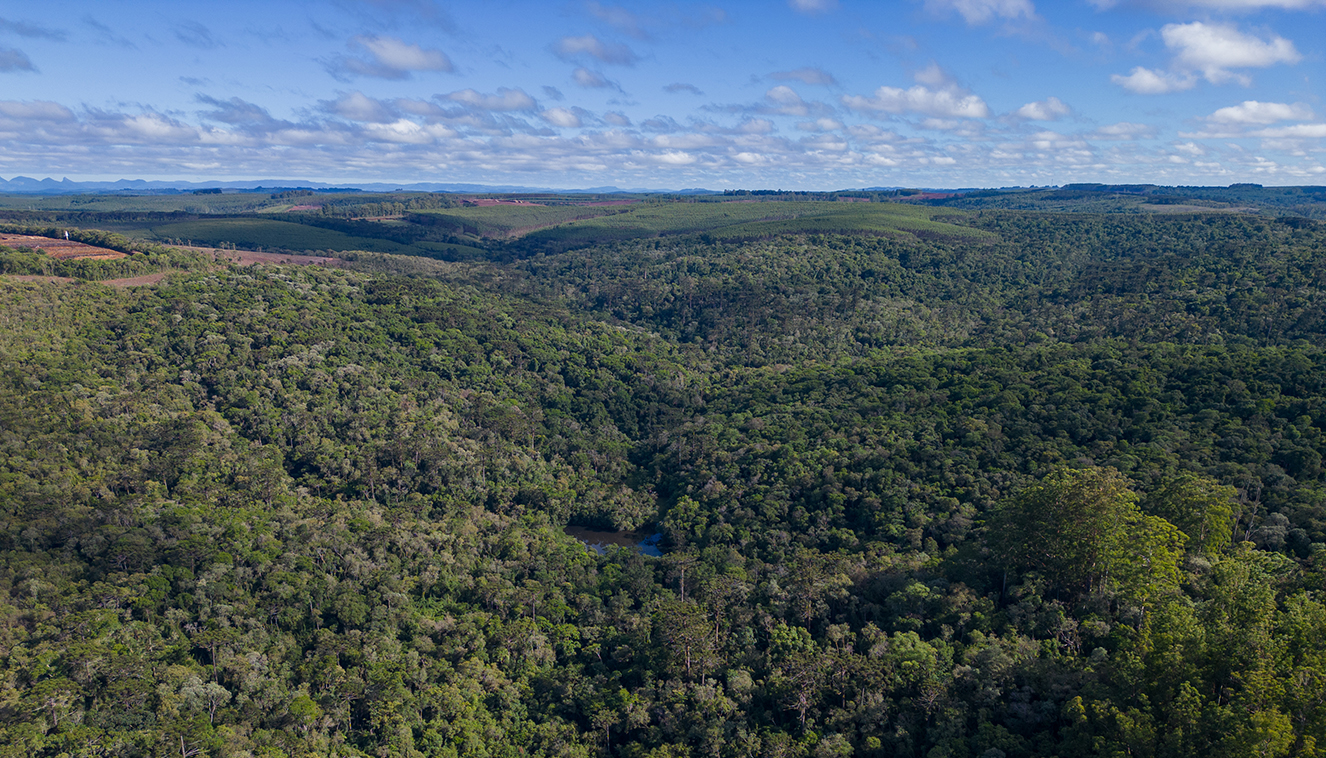
Zero deforestation
One of Klabin's Biodiversity Conservation Plan programs includes the longstanding commitment to not convert native forests into productive areas aimed at increasing wood production for industrial purposes and raw materials for all businesses, as outlined in the FSC certification parameters and the Company's Zero Deforestation Declaration. The publication of the European Union Deforestation-Free Regulation (EUDR) in 2023 presented new challenges to Klabin. The company made significant strides in enhancing internal processes to optimize the traceability of the origin of the wood used in its products destined for European countries.
Klabin Ecological Park, in Paraná, has over 90% of its area covered by native forests
Natural Heritage Private Reserve (RPPN)
The services that nature provides to mankind and that are indispensable for its survival, associated with the quality of life and well-being of society.
SEE GLOSSARYAcronym for Natural Heritage Private Reserve. It is a private domain conservation unit (UC) category, whose objective is to conserve biological diversity. The creation of a UC does not affect the ownership of the property. In addition to contributing to the expansion of protected areas in the country, private reserves help to protect the biodiversity in Brazilian biomes.
SEE GLOSSARY



